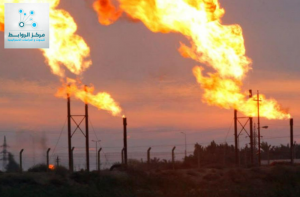BY:Shatha kalel
Iraq, a country rich in history and natural resources, is facing an escalating environmental crisis. Environmental degradation has reached alarming levels, affecting the health and well-being of citizens and threatening the country’s ability to sustain its natural ecosystems. Environmental disasters, pollution, weak infrastructure, and a lack of effective government action have become pressing issues. This article examines the key factors contributing to Iraq’s environmental deterioration, the underlying causes, and potential solutions to address these problems.
Causes of Environmental Degradation in Iraq
Uncontrolled Urban Expansion and Pollution The rapid and unplanned expansion of cities in Iraq, especially in Baghdad and Basra, has led to serious environmental problems. Urban areas suffer from inadequate waste management systems, leading to the accumulation of garbage in streets, waterways, and residential areas. Open burning of waste releases harmful toxins into the air, contributing to poor air quality and public health crises.
Additionally, sewage systems are often outdated or insufficient, causing untreated sewage to flow directly into rivers such as the Tigris and Euphrates, which are vital sources of water in Iraq. These rivers are now heavily polluted, affecting both human and aquatic life.
Air Pollution Air pollution is one of Iraq’s biggest environmental challenges. In areas around the U.S. embassy in Baghdad, air quality has been classified as “unhealthy,” reflecting a broader issue throughout the country. Industrial emissions, car exhaust, and the widespread use of low-quality fuel contribute to the high levels of harmful particles in the air. Dust storms, which have increased due to desertification and poor land management, further exacerbate the problem.
Iraqis, particularly in urban areas, breathe air that falls far below international health standards. The lack of air conditioning and filtration systems exposes people to dangerous levels of pollutants daily, leading to higher rates of respiratory diseases and other health issues.
Lack of Air Conditioning and Cooling Systems Iraq experiences extreme heat, especially during summer when temperatures exceed 50°C (122°F). However, many citizens lack access to reliable air conditioning, making life unbearable in such conditions. This problem is worsened by frequent power outages and high electricity costs, preventing many families from using cooling devices even if they are available.
The lack of air conditioning not only causes physical discomfort but also contributes to health risks such as heatstroke and dehydration, particularly among vulnerable groups like children and the elderly.
Water Scarcity and Pollution Iraq’s water crisis is another critical environmental issue. The combination of prolonged drought, poor water management, and pollution has led to severe water shortages across the country. The Tigris and Euphrates rivers, Iraq’s primary water sources, are experiencing reduced water levels due to dams built by neighboring countries and excessive water usage.
Moreover, pollution from industrial waste, sewage, and agricultural runoff has made river water unsafe for drinking or irrigation, threatening public health and agricultural productivity.
Solutions to Environmental Degradation
Government Intervention and Policy Implementation The Iraqi government must take immediate and decisive action to combat environmental degradation. This includes enforcing stricter environmental regulations on industries, improving waste management systems, and investing in sustainable infrastructure. Government agencies should collaborate with international organizations and environmental experts to develop comprehensive plans for environmental restoration and protection.
Public Awareness and Education Raising public awareness about the importance of environmental conservation is crucial. Educational programs should be implemented in schools and local communities to teach citizens how to recycle, manage waste, and conserve energy. Media campaigns can play a key role in informing the public about the dangers of environmental pollution and the steps they can take to protect their surroundings.
Investment in Clean Energy and Sustainable Technologies Iraq’s dependence on fossil fuels has significantly contributed to air and water pollution. To address this, the government should invest in clean energy sources such as solar, wind, and hydropower. Iraq has great potential for solar energy, especially in desert areas, and tapping into this resource can help reduce the country’s reliance on oil and gas.
Reforestation and Land Restoration Desertification is a growing problem in Iraq, leading to frequent dust storms and the loss of arable land. Large-scale reforestation projects must be implemented to restore damaged ecosystems. Planting trees and vegetation can help prevent soil erosion, improve air quality, and reduce the severity of dust storms.
Conclusion
Environmental degradation in Iraq is a multifaceted problem that requires urgent attention from the government, the international community, and the Iraqi citizens themselves. By addressing the root causes of pollution, water scarcity, and climate-related disasters, Iraq can restore its environment and improve the quality of life for its people. Now is the time for action, and with the right strategies in place, Iraq has the potential to reverse its environmental decline and build a more sustainable future.
Economic Unit/North America Office
Al Rawabet Center for Research and Strategic Studies

